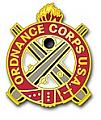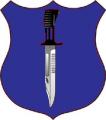Major League is it not?
Anyway big topic and one I hope yuou will get some insights from...
My take as a long term analyst here is best described in the CALL Special Study Transfroming the Staff for the 21st Century. You can download that on the CALL gateway. I put it as a doctrinal mark we have yet to hit because of the way MI (in the Army) is structured, manned, and promoted. WM has some views on this as well.
We have made some adjustments in the past 5 years--notably the realization driven by operations and the CTCs (JRTC in particular) that we have to have an intel capability at company level in this kind of fight. It took several years but Benning and Huachuca finally got on board--with prodding from AWG. Look at the Tactical Intelligence Newsletter on the CALL Gateway and all of the Company-level SOS series (especially VOLS 1 and 3 as well as 6 which should be out soon) SWJ contributed to that effort.
Best
Tom
















Bookmarks